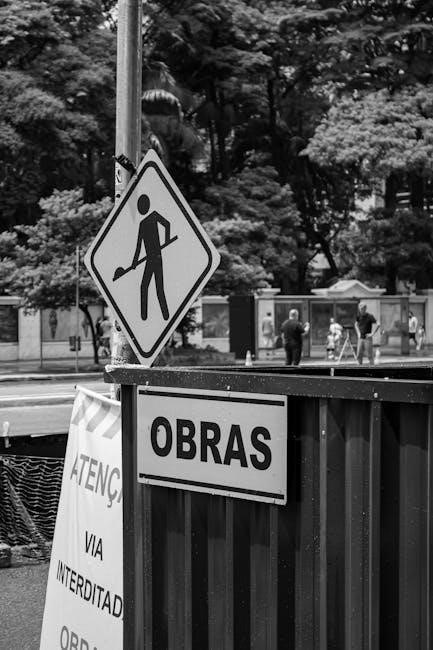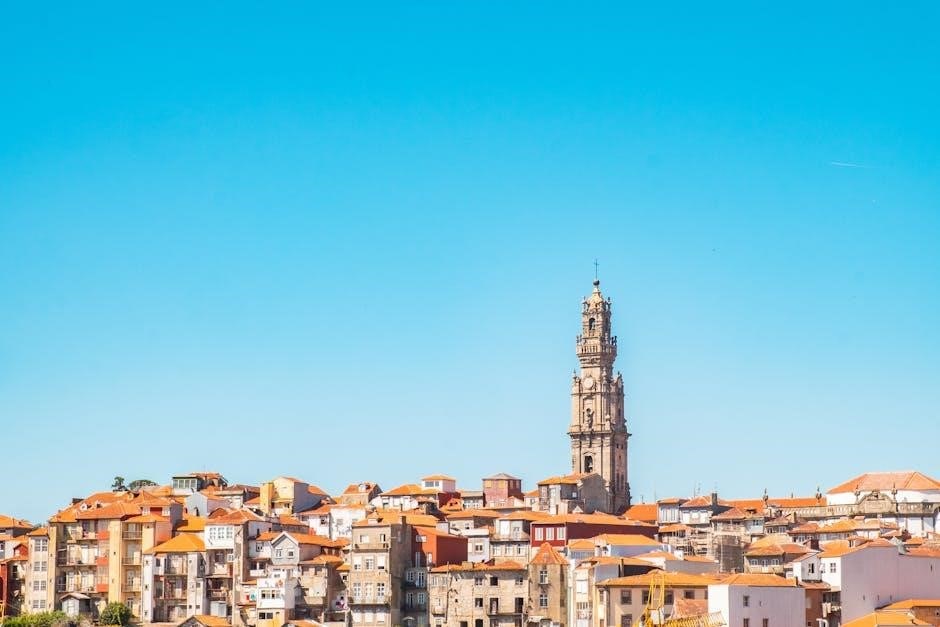Angolan literature reflects the nation’s rich cultural heritage and its transition from colonial to post-colonial identity․ Notable authors like José Luandino Vieira and Pepetela have shaped its unique voice, blending urban themes and magical realism․ Their works, such as “A cidade e a infância” and “Mayombe”, are now widely available in PDF format, making Angolan literature accessible globally for academic and personal exploration․
1․1․ Overview of Angolan Literary History
Angolan literary history traces its roots to the colonial period, where African and European influences merged․ Early writers like António Jacinto and Agostinho Neto laid the groundwork, blending traditional oral narratives with modern styles․ The mid-20th century saw a surge in nationalism, with literature becoming a tool for resistance․ Post-independence, themes of identity, urban life, and social struggles emerged․ This evolution reflects Angola’s cultural richness and political journey․ Today, works by José Luandino Vieira and Pepetela are celebrated, highlighting the nation’s literary growth and global accessibility through PDF formats, preserving its heritage for future generations;
1․2․ The Transition from Colonial to Post-Colonial Literature
The transition from colonial to post-colonial literature in Angola marked a shift from European-influenced narratives to a focus on national identity․ Early writers like António Jacinto and Agostinho Neto reflected on colonial oppression, while post-independence authors explored themes of freedom and social justice․ This period saw the rise of urban settings and magical realism, blending traditional and modern elements․ The works of Pepetela and José Eduardo Agualusa exemplify this transformation, offering critiques of society and celebrations of Angolan culture․ The availability of these works in PDF format has made them accessible for global readers, preserving the nation’s literary legacy․
Historical Context of Angolan Writers
Angolan writers emerged from a rich cultural tapestry, shaped by colonial influences and the struggle for independence․ Early literary figures like António Agostinho Neto laid the groundwork for modern voices, blending traditional and contemporary themes․ Their works, now widely available in PDF format, reflect the nation’s journey from oppression to self-discovery, preserving Angola’s literary heritage for future generations․
2․1․ Early Influences and Colonial Era Literature
During the colonial era, Angolan literature was deeply influenced by Portuguese culture, yet it maintained a unique African essence․ Early writers like António Agostinho Neto, Fernando Monteiro de Castro Soromenho, and Geraldo Bessa Victor emerged, blending European literary styles with local traditions․ Their works often reflected the struggles of colonialism and the quest for cultural identity․ The colonial period also saw the rise of poetry and prose that laid the foundation for modern Angolan literature․ These early influences paved the way for a distinct literary voice, now accessible through PDF formats of their works, preserving Angola’s rich literary heritage․
2․2․ The Emergence of Modern Angolan Literature
Modern Angolan literature emerged in the post-independence era, reflecting the nation’s cultural and social transformation․ Writers like José Luandino Vieira, Pepetela, and Manuel Rui pioneered this movement, blending traditional storytelling with contemporary themes․ Their works, such as “A cidade e a infância” and “Mayombe”, highlighted urban life and identity struggles․ This period also saw the rise of magical realism, enriching the narrative style․ The availability of these works in PDF format has made them accessible to global readers, fostering a deeper understanding of Angola’s literary evolution and its contribution to world literature․

Notable Angolan Writers
Notable Angolan writers like José Luandino Vieira and Pepetela have enriched the literary scene with works such as “A cidade e a infância” and “Mayombe․” Their writings are now accessible in PDF format, making Angolan literature reachable worldwide․
3;1․ José Luandino Vieira and His Contributions
José Luandino Vieira is a pivotal figure in Angolan literature, known for his vivid portrayal of urban life and cultural identity․ His notable works include “A cidade e a infância” and “A vida verdadeira de Domingos Xavier,” which explore themes of childhood, identity, and societal challenges․ Vieira’s writing often blends realism with a deep connection to Angola’s history and daily life․ His contributions have made his works accessible in PDF format, allowing global readers to engage with his unique narrative style and cultural insights․ His literature remains a cornerstone of Angolan literary heritage․
3․2․ Pepetela: A Prominent Figure in Angolan Literature
Pepetela stands out as a leading voice in Angolan literature, celebrated for his nuanced exploration of national identity and social issues․ His seminal work, “Mayombe,” delves into the lives of MPLA guerrilla fighters, offering a compelling narrative of Angola’s struggle for independence․ Pepetela’s writing often combines historical depth with contemporary relevance, addressing themes of culture, politics, and societal transformation․ His works are widely studied and are now accessible in PDF format, ensuring his literary legacy reaches a broader audience․ Pepetela’s contributions have significantly enriched Angolan literature, making him a key figure in the nation’s cultural landscape․
3․3․ Manuel Rui and His Literary Impact
Manuel Rui is a distinguished Angolan writer known for his unique blend of traditional and modern storytelling․ His work, particularly “Estratégias de Oposição”, explores themes of identity, history, and social change, offering a profound insight into Angola’s cultural fabric․ Rui’s narratives often bridge the past and present, creating a rich tapestry of experiences․ His writing is celebrated for its depth and complexity, making him a significant figure in contemporary Angolan literature․ His works are now widely available in PDF format, enabling readers worldwide to engage with his contributions to the nation’s literary heritage․
3․4․ José Eduardo Agualusa: A Contemporary Voice
José Eduardo Agualusa is a leading contemporary Angolan writer, celebrated for his innovative storytelling and exploration of identity․ His works, such as “Nação Crioula”, blend historical narratives with magical realism, offering a unique perspective on Angola’s cultural and social landscapes․ Agualusa’s writing often delves into themes of memory, colonialism, and nationalism, resonating deeply with readers․ His contributions have significantly enriched Angolan literature, making him a prominent figure in both national and international literary circles․ His works are now accessible in PDF format, ensuring his stories reach a global audience and inspire future generations of writers and readers alike․

Key Works of Angolan Authors
Key works include “A cidade e a infância” by José Luandino Vieira, “Mayombe” by Pepetela, “Estratégias de Oposição” by Manuel Rui, and “Nação Crioula” by José Eduardo Agualusa, all available in PDF formats, offering insights into Angola’s rich literary heritage․

4․1․ “A cidade e a infância” by José Luandino Vieira
“A cidade e a infância” is a seminal work by José Luandino Vieira, first published in 1957 and reprinted in 1986․ This collection of short stories captures the essence of urban life and childhood in Angola, reflecting the societal changes during the colonial period․ Vieira’s vivid storytelling highlights the struggles and hopes of ordinary people, offering a poignant portrayal of Angolan reality․ The book is widely regarded as a foundation of modern Angolan literature and is now accessible in PDF format, allowing readers worldwide to explore its rich cultural and historical insights․
4․2․ “Mayombe” by Pepetela
“Mayombe”, written by Pepetela in 1980, is a landmark novel in Angolan literature․ Set during the national liberation movement, it explores themes of identity, culture, and resistance․ The story follows a group of guerrilla fighters in the Mayombe forest, blending historical facts with fictional narratives․ Pepetela’s use of magical realism and vivid storytelling captures the spirit of Angola’s struggle for independence․ The novel is celebrated for its deep exploration of societal complexities and cultural heritage․ Available in PDF format, “Mayombe” remains a vital resource for understanding Angola’s literary and historical landscape, offering insights into the nation’s journey toward freedom and self-discovery․
4․3․ “Estratégias de Oposição” by Manuel Rui
“Estratégias de Oposição” by Manuel Rui is a significant work in Angolan literature, exploring themes of identity, resistance, and social change․ The book delves into the complexities of Angolan society, weaving together historical and contemporary narratives․ Rui’s writing is known for its lyrical prose and profound insight into human struggles․ This work is celebrated for its ability to challenge societal norms while offering a deeply personal perspective․ Available in PDF format, “Estratégias de Oposição” is a must-read for those interested in understanding Angola’s cultural and political landscape through literature․
4․4․ “Nação Crioula” by José Eduardo Agualusa
José Eduardo Agualusa’s Nação Crioula is a captivating exploration of Angolan identity, weaving historical narratives with contemporary reflections․ The novel delves into the complexities of cultural hybridity and national consciousness, offering a rich tapestry of voices and stories․ Agualusa’s prose is both poetic and evocative, blending elements of magical realism to create a unique reading experience․ As a prominent work in modern Angolan literature, Nação Crioula is widely celebrated for its depth and innovation․ Its availability in PDF format has made it accessible to a global audience, fostering greater appreciation for Angola’s literary heritage․

Cultural and Thematic Elements in Angolan Literature
Angolan literature explores themes of identity, nationalism, and urban life, often blending magical realism with local folklore․ Works like “Nação Crioula” in PDF highlight this cultural richness․
5․1․ The Role of Urban Settings in Angolan Novels
Urban settings play a central role in Angolan novels, reflecting the country’s societal transformations․ Authors like José Luandino Vieira and Pepetela often portray cities as vibrant, complex spaces․ Their works, such as “A cidade e a infância” and “Mayombe”, delve into urban life, capturing the struggles and cultural richness of city dwellers․ These narratives highlight themes of identity, migration, and adaptation, offering a window into Angola’s modernization․ The availability of these works in PDF format has made them more accessible, allowing readers worldwide to explore the urban tapestry of Angolan literature and its deep cultural significance․
5․2․ The Use of Magical Realism in Angolan Writing
Magical realism is a prominent element in Angolan literature, blending the fantastical with everyday life․ Authors like José Eduardo Agualusa, in works such as “Nação Crioula”, weave historical facts with mystical elements to explore themes of identity and culture․ This narrative style allows writers to critique societal issues while captivating readers with vivid imagery․ The availability of these works in PDF format has made them more accessible, enabling a broader audience to engage with Angolan writers’ unique storytelling techniques and the cultural depth they convey through magical realism․
5․3․ Exploration of Identity and Nationalism
Angolan literature deeply explores themes of identity and nationalism, reflecting the nation’s complex history and cultural diversity․ Authors like Pepetela and Manuel Rui use their works to examine the tensions between traditional values and modernity․ Their narratives often highlight the struggles of Angolan people in forging a unified national identity․ The availability of their works in PDF format has facilitated global access to these explorations, enabling readers to understand the socio-political landscapes that shape Angolan culture and its literary expression․ This thematic focus remains central to the nation’s literary heritage and contemporary writing․
Availability of Works in PDF Format
Angolan literary works are increasingly available in PDF format, offering easy access to readers worldwide․ Platforms like Google Books and archive․org host works by José Luandino Vieira and Pepetela, facilitating academic and personal exploration of Angolan culture and literature․
6․1․ Popular Platforms for Downloading Angolan Literary Works
Popular platforms for downloading Angolan literary works in PDF format include Google Books, ResearchGate, and archive․org․ These sites offer free access to works by authors like José Luandino Vieira and Pepetela․ Google Books often provides preview snippets or full texts of classic Angolan novels, while ResearchGate enables scholars to share and access academic papers and e-books․ Additionally, archive․org hosts a wide range of public-domain and contemporary works, making Angolan literature accessible to readers worldwide․ These platforms have become essential resources for students, researchers, and literature enthusiasts seeking to explore Angola’s rich literary heritage․
6;2․ The Significance of PDF Availability for Academic and Personal Use
The availability of Angolan literary works in PDF format holds immense significance for both academic and personal use․ It democratizes access to rare and essential texts, enabling scholars and enthusiasts to explore Angola’s rich literary heritage․ PDFs provide a portable and easily shareable format, making them ideal for research and study․ For academics, this facilitates in-depth analysis and referencing, while for personal use, it allows readers to engage with Angolan literature without physical constraints․ This accessibility not only preserves cultural knowledge but also fosters a deeper appreciation for Angola’s history and identity, bridging gaps between global readers and local narratives․
6․3․ A Comprehensive List of Angolan Writers and Their Works in PDF
A comprehensive list of Angolan writers and their works in PDF is now widely accessible online, offering an extensive collection of literary masterpieces․ This list includes works by renowned authors such as José Luandino Vieira, Pepetela, and José Eduardo Agualusa, among others․ Readers can find classic novels like “A cidade e a infância” and “Mayombe”, as well as contemporary pieces that reflect Angola’s cultural evolution․ These PDF resources are invaluable for researchers, students, and literature enthusiasts, providing easy access to Angola’s rich literary heritage and fostering a deeper understanding of its history and identity․
